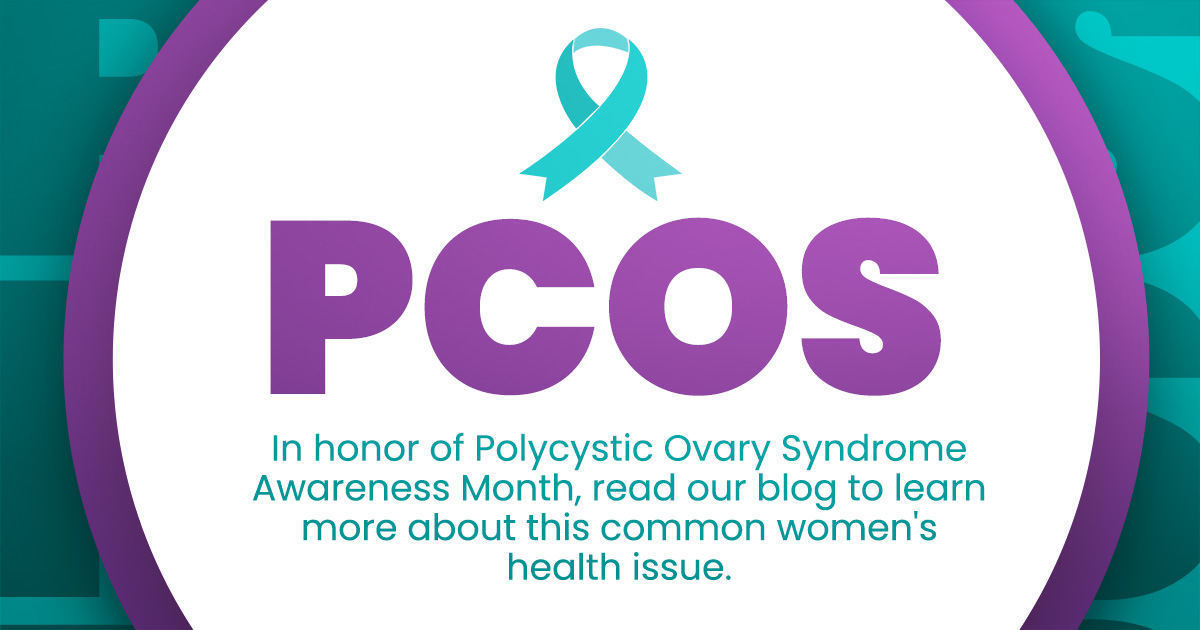September is Polycystic Ovary Syndrome (PCOS) Awareness Month, dedicated to spreading knowledge on this common yet often misunderstood health condition. PCOS affects millions of women worldwide and can have a significant impact on reproductive and overall health. In this blog, we will delve into what PCOS is, its symptoms, associated risks, and why it’s crucial to raise awareness about it during this special month.
What is PCOS?
Polycystic Ovary Syndrome (PCOS) is a hormonal disorder that affects individuals with ovaries, primarily women of childbearing age. The term “polycystic” refers to the appearance of the ovaries in individuals with PCOS, which can appear enlarged and contain small, fluid-filled sacs called cysts. However, not all individuals with PCOS have cysts on their ovaries, making the name somewhat misleading.
PCOS is primarily a hormonal imbalance that disrupts the normal functioning of the ovaries. PCOS is primarily a metabolic difference that impacts how the body processes insulin. A downstream impact of this difference is on hormones. This can lead to an array of symptoms and health issues, including irregular menstrual cycles, infertility, and a range of other complications.
 Symptoms of PCOS
Symptoms of PCOS
PCOS can manifest in various ways, and its symptoms can vary from person to person. Here are some of the common signs and symptoms associated with PCOS:
- Irregular Menstrual Cycles: Women with PCOS often experience irregular or absent menstrual periods, making it difficult to predict ovulation and conceive.
- Ovulatory Dysfunction: PCOS can disrupt the normal ovulation process, which is crucial for fertility. Anovulation (lack of ovulation) is a common issue among individuals with PCOS.
- Excessive Androgen Levels: Elevated levels of androgens (male hormones) can lead to symptoms such as acne, hirsutism (excessive hair growth), and male-pattern baldness.
- Polycystic Ovaries: As mentioned earlier, some individuals with PCOS have ovaries that appear enlarged and contain multiple small cysts.
- Insulin Resistance: Women with PCOS are at higher risk of insulin resistance, which can contribute to weight gain and increase the risk of type 2 diabetes. This is more pronounced with higher weight.
In some cases, birth control can help manage symptoms of PCOS. Explore our enrolling birth control studies at Seattle Clinical Research Center.
Why You Shouldn’t Ignore PCOS
Untreated PCOS can pose a range of significant health risks. The hormonal imbalances and metabolic disturbances associated with PCOS can lead to complications such as insulin resistance and weight gain, which could, in some cases, progress to type 2 diabetes. The irregular menstrual cycles often seen in PCOS can contribute to endometrial hyperplasia, which, if left untreated, may raise the risk of endometrial cancer. Additionally, infertility is a concern with PCOS due to disrupted ovulation patterns. However, with timely diagnosis and appropriate management, these risks are lessened, and the health of individuals with PCOS can be improved.

Polycystic Ovary Syndrome is a complex and multifaceted health condition that affects countless women around the world. PCOS Awareness Month serves as a reminder that it’s crucial to understand and address this condition. By prioritizing your reproductive and overall health, seeking medical advice, and advocating for better awareness and care, you can take control of your PCOS journey and improve your quality of life. Let September be a month of empowerment and education as we at Seattle Clinical Research Center work to spread awareness and support for PCOS and other women’s health conditions.



